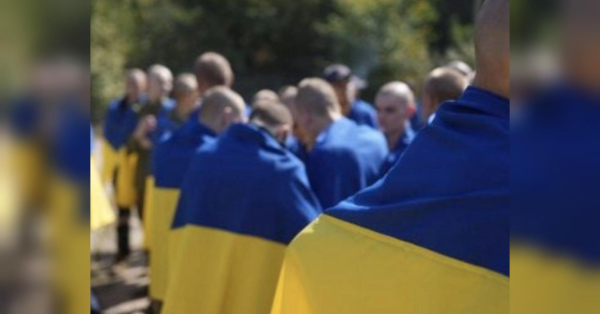
It should be no surprise that Washington’s Syrian Kurdish allies—who have long had daggers drawn and pointed at our fellow NATO member Turkey—are now reconciling with our Syrian enemy President Bashar al-Assad.
Since the outbreak of the Syrian war in 2011, the Kurdish YPG (People’s Protection Units) and its allies, with critical military support from the United States, have occupied three cantons in Syria along the border with Turkey as part of their war against ISIS. Turkey views the Syrian Kurdish forces now in place as in league with the PKK (Kurdistan Workers Party), against whom it has been waging intermittent battles in Turkey for many years.
On January 20, Turkey began a limited military operation to drive out the YPG from the westernmost canton, anchored by Afrin, a town of 35,000. In recent days Damascus, too, has joined the battle in support of its disaffected citizens, sending uniformed irregulars to the front.
It at first seems difficult to understand the (so far) limited skirmishes between all these players. But while the battlefield may be messy, it’s not impossible to break down. A new chapter in the struggle for Syria is unfolding, and Washington’s nominal allies in its war against ISIS are looking to their futures. For the estranged Kurds, that means continuing efforts to improve the terms under which their minority in Syria is ruled from Damascus.
The engagement between those at the center of political and military power and those disenfranchised on its periphery has been at the heart of Arab politics—not only in Syria—since its nations achieved independence. This is a very, very long story, sometimes bloody, that will not end soon—and maybe not ever.
The U.S. all too often simplifies such complexities into manageable caricatures, pitting Kurds against Arabs, Sunnis against Shias, Turks against Kurds, ad nauseam. Such shorthand obscures more than it clarifies, but it befits a player with a limited time horizon and no essential vital national interest in the outcome. Really, does the fate of the nation depend on whose writ runs in Afrin?
The U.S. all too often constructs policy choices framed by a contest between good guys and bad guys. And by definition, Washington is always on the side of the angels. But reality, in Syria and elsewhere, is always a more frustrating interplay between shades of gray, and Washington is not good at shades of gray. Certainly not in the dusty hilltops of Afrin along the border with Turkey, where all the white hats are soiled beyond recognition.
The goal the Trump administration hopes to achieve by arming the Kurds—arms that have now been turned on Turkey!—is to improve Washington’s ability to undermine the postwar power of the regime by impeding the restoration of its sovereign authority throughout the country. The Kurds, however, have no place to go but Syria, and no regime but the one in Damascus, from which they were never totally estranged. Geography will win out, long after Washington tires of its good works and pulls up its stakes, no matter how long it takes.
Neither Ankara nor Damascus can abide a Kurdish enclave comprising 20 percent of Syria—the Turks because of historical concerns about Kurdish irredentism in Turkey, the Syrians because of the national security imperative to rule its sovereign territory.
Turkish president Recep Tayyip Erdogan’s military offensive has forced the YPG—and more broadly the question of the Kurdish minority’s place in postwar Syria—back onto the regime, which is exactly where Ankara, Moscow, and Baghdad want it. This in itself is quite an achievement.
Almost as if it were choreographed, the deployment of Turks, which features ragtag elements of what remains of the Syrian opposition, has prompted Washington-armed and -supported YPG forces east of the Euphrates, and even some Iraqi Kurds, to take their war to the front, courtesy of Assad’s influence. All sides are huffing and puffing. But while Turkish and Syrian deployments are small and ambiguous enough to force everyone to pay attention, they do not represent a decision to go to war.
There is a method to this madness. A wider war would represent a breakdown of the consensus (with the prominent exception of Washington) in favor of restoring sovereign Syrian authority all along the border with Turkey. As the YPG and, more broadly, the Kurdish minority in northeast Syria contemplate their postwar future, by preference and circumstance they know that there is no real option but to reconcile with Damascus. The Turkish incursion has forced the recognition of this reality.
Explaining the call for Syrian government intervention on its behalf, a YPG statement noted that:
The Syrian government responded to the invitation, answered the call of duty and sent military units today, February 20, to take up positions on the borders, and participate in defending the territorial unity of Syria and its borders.
In the same vein, Syria’s state media reported that pro-Damascus forces would head to Afrin to “join the resistance against the Turkish aggression.”
“This comes in the framework of supporting residents and defending the territorial unity and sovereignty of Syria,” the news agency SANA said.
Syrian irregulars kitted out in uniforms and shiny Toyota Tundra technical vehicles were shown being welcomed by celebrating YPG forces through checkpoints at the entrance to the enclave. “Unity! Unity! Unity!” they shouted. The Syrian people are one!”
One does not have to break into a chorus of Kumbaya to understand that nationalism is the tie, however uneasy, that binds Damascus and the YPG. This was always the case and it makes America’s reliance upon the YPG a strategic, expensive, and embarrassing dead end.
Geoffrey Aronson is chairman and co-founder of The Mortons Group and a non-resident scholar at the Middle East Institute.
Sourse: theamericanconservative.com






